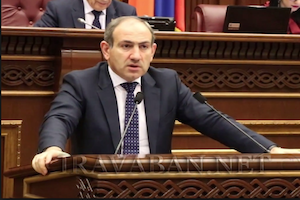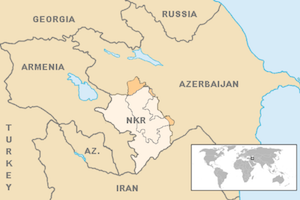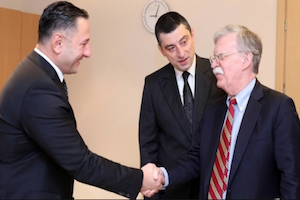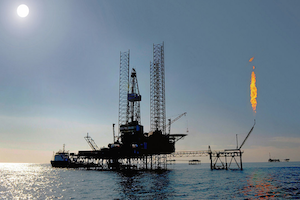Military Procurements on Armenia's and Azerbaijan's Defense Agendas
By Ilgar Gurbanov
March 27, 2019, the CACI Analyst
In parallel with their peace talks on the Nagorno-Karabakh conflict, Azerbaijan and Armenia seek to diversify and deepen their partnerships with major arms suppliers. By diversifying its arms purchases from several different partners, Azerbaijan seeks to multiply its arsenal and retain a military advantage against Armenia, whose corresponding efforts aim to cement the status quo through military occupation of Azerbaijan’s territories. Both countries aim to maximize the tactical efficiency of their arsenals on the potential battlefield.

Armenia's New Government Struggles with Domestic and External Opposition
By Armen Grigoryan
March 20, 2019, the CACI Analyst
After winning an overwhelming majority at the snap parliamentary elections in December, Armenia’s Prime Minister Nikol Pashinyan has formed a new cabinet and presented its program. While Pashinyan enjoys a high level of public approval, probably the most serious challenge awaiting his cabinet in the coming months is withstanding the massive campaign by the former regime’s proxies to undermine the government’s credibility in order to avoid the prosecution of some top-level former officials and to prepare the ground for their possible return to power. Speculations about the possibility of unilateral concessions on the Nagorno-Karabakh issue have been at the center of the campaign.

Azerbaijan and Armenia Eager to Revive Nagorno-Karabakh Peace Talks
By Emil A. Souleimanov and Huseyn Aliyev
January 23, 2019, the CACI Analyst
Recent weeks have seen an unprecedented series of high-level meetings of Armenian and Azerbaijani representatives on Nagorno-Karabakh, Azerbaijan’s breakaway territory closely linked since the early 1990s to Armenia. Whereas many analysts considered resumed peace talks unlikely after the April 2016 fighting, Armenia’s Velvet Revolution and the replacement of the country’s war-hardened Karabakh elite with a forward-looking and liberal government has provided new stimulus in this regard. As Azerbaijani officials perceive the recent power shift in Armenia as a window of opportunity to advance a peaceful solution to the long-standing conflict, optimism regarding the prospect of a deal appears higher than in many years.

Bolton's Caucasian Tour and Russia's Reaction
By Eduard Abrahamyan
December 17, 2018, the CACI Analyst
On October 24-26, a U.S. State Department delegation headed by National Security Adviser Ambassador John Bolton visited the South Caucasian republics after talks in Moscow. The delegation’s visit to Azerbaijan, Armenia and Georgia was immediately dubbed a reinvigoration of U.S. policy towards the Caucasus and a pragmatic reengagement with the conflicted region. Bolton appeared to refine the evolving U.S. priorities with each country, categorizing them in accordance with political capabilities, shared interests and the roles that Georgia, Azerbaijan and Armenia respectively seek in relations with the West. The visit, however, caused an angry reaction from Moscow, especially given the issues Bolton raised in Yerevan.

Thinking Big About Caspian Energy
By Stephen Blank
November 29, 2018, the CACI Analyst
The signing of the Caspian convention in August 2018 has opened up exciting new possibilities for getting Central Asian oil and gas to European and global markets. The long-desired Southern Gas Corridor (SGC) from both shores of the Caspian has thus become a possibility. By thinking big, we can use Caspian gas for beneficial economic and political purposes. Whatever route Caspian energy takes to Europe, it must traverse the Caucasus and can be of substantial value in transforming the Eurasian geopolitical scene and agenda. Specifically, those parties who have the most to gain form resolving the Nagorno-Karabakh conflict can now devise a peace program that incorporates the use of energy to help foster an enduring peace between Armenia and Azerbaijan, reduce Russia’s ability to manipulate this conflict, and at the same time enrich them both as well as European consumers.






 Book S. Frederick Starr and Svante E. Cornell,
Book S. Frederick Starr and Svante E. Cornell,